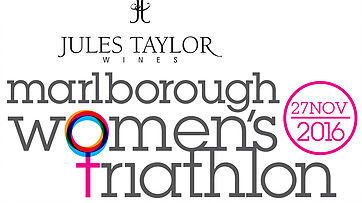Facts Around Alcohol and Health
Latest research continues to show that there are long term health consequences from drinking alcohol particularly if it’s excessive. Alcohol (like bacon and cigarettes) is a known carcinogen, i.e. there is a confirmed relationship between alcohol and cancer. The good news is that this is dose-response.
FACT: This means that the one drink is worse than none, two drinks is worse than one and drinking excessively is next level risk.

Heavy drinking can lead to stroke, high blood pressure, pancreatitis and cirrhosis of the liver. By consuming alcohol there is increased risk of developing cancers of the mouth, pharynx, oesophagus, larynx, breast, bowel and liver. The Ministry of Health Guidelines and ALAC advice is based around reducing our risk from alcohol-related disease and/or injury, rather than best health practice.
FACT: the more alcohol we drink the higher the risk of developing cancer and other disease. The other side of the coin is that we can reduce our risk by reducing consumption.
But isn’t a little bit of alcohol good for the heart? It has commonly been advised that less than two standard drinks is good for you. This is a very appealing theory and there is a lot of research that appears to back this up. The research that encourages this is disputed as there are other possible explanations for the association between alcohol and cardio vascular disease that can’t be ruled out. There is also a growing body of research that suggests that reducing consumption even for light/moderate drinker is going to be better for your cardiovascular health.
FACT: While this research is being disputed the link between any alcohol and cancer is not being disputed.
Binge drinking is often defined as five standard drinks in a sitting for men and four for women. Binge drinking has a number of immediate risks – falls, accidents, poor life decisions. Alcohol increases our heart rate and blood pressure, so drinking excessively elevates your risk of a stroke.
FACT: Drinking more than two standard drinks increases your risk of stroke three times, but binge drinking increases it more than five times what it normally is.
What is a Standard Drink?

Low-Risk Drinking
- Women – don’t consume more than 2 standard drinks a day and no more than 10 per week.
- Men – don’t consume more than 3 standard drinks a day and no more than 15 per week.
- Have 2 alcohol free days per week.
8 Tips for consuming Alcohol
- Know what a standard drink is. See above, but also measure 100mL and pour it into your normal wine glass.
- Keep track of how much you drink – daily and weekly.
- Stick to a self-imposed limits.
- Consume food before and whilst drinking.
- Start with non-alcoholic drinks and alternate with alcoholic drinks.
- Try different drinks with lower alcohol content – try low alcohol wines and ciders.
- Drink slowly, there is no rush.
- Provide food, no-alcohol and low-alcohol beverages if you are hosting a function.
How Many kiloJoules are in Alcoholic Drinks?
Click here for a info-graphic about kiloJoule content of alcoholic drinks.
I’ve prepared a twelve week training programme to prepare you for the Jules Taylor Wines Women’s Marlborough Triathlon. Each Thursday I will post it here for you follow along with. This programme started Monday 5 September. The first weeks of the programme can be found:
Key Point for the Week

Next weeks training
Monday – 7 November
Run/Walk (a total of 35min) – 5min Walk, 20min Run, 5min Walk
Tuesday
Swim – fifteen lengths, taking as much rest as you need to between lengths
Wednesday
Bike (total of 41min) – 10min Warm Up; 3x 6min Hard, 1min Rest Interval (RI); 10min Cool Down
Thursday
Run/Walk (35min) – Same as Monday
Friday
Stretching Day (30min)
Saturday
Swim – twenty lengths, taking as much rest as you need to between lengths
Sunday
Bike (80min) steady
If you would like further advice feel free to contact Coach Ray.
Coach Ray is the Head Coach & Director of Qwik Kiwi – Endurance Sports Consultant and is a prominent triathlon and marathon coach in New Zealand.
Coach Ray specialises in assisting beginner and recreational athletes to achieve their sporting goals. He can be contacted at www.qwik.kiwi, ray@qwikkiwi.com and 021 348 729. Make sure you sign up to his monthly informative newsletter.
Share this post so your friends can benefit as well.
